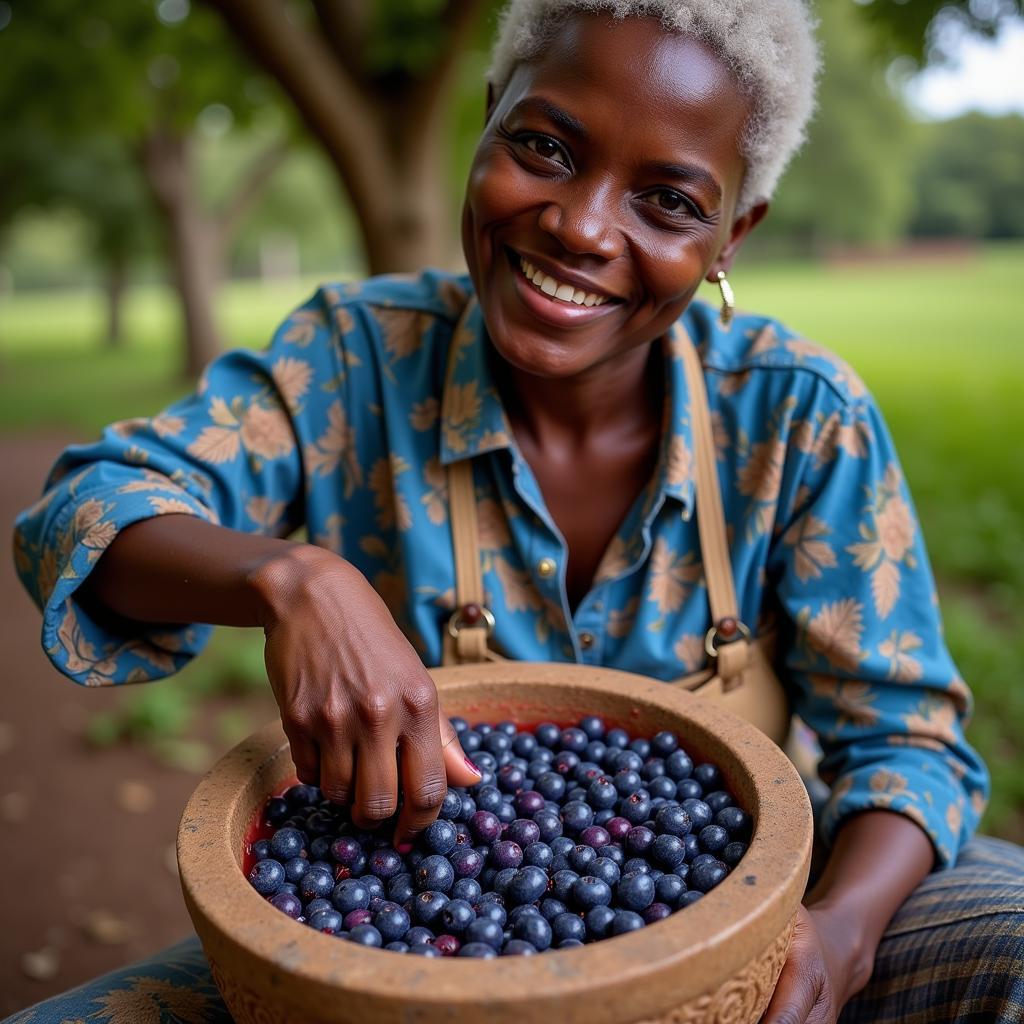Unveiling the Mystery: African Blueberry Juice – Is It Really Tropicana?
When you think of blueberry juice, images of North American fields and familiar brands like Tropicana might come to mind. But did you know that Africa, a continent brimming with diverse flora, also holds a treasure trove of berries often called “African blueberries”? This begs the question: what exactly is African blueberry juice, and how does it compare to the Tropicana blueberry juice we know?
Debunking the Myth: African Blueberries vs. True Blueberries
Firstly, let’s address the elephant in the room – African blueberries aren’t technically blueberries. While sharing a similar deep blue hue and slightly sweet taste, they belong to a different botanical family. This distinction is crucial for understanding why you won’t find “African Blueberry Juice” on a Tropicana product list.
These “blueberries,” scientifically known as Vitex doniana or black plum, are indigenous to many parts of sub-Saharan Africa. They thrive in various regions, from the savannas of East Africa to the forests of West Africa, adding a unique touch to the continent’s diverse culinary palette.
A Taste of Africa: Exploring the Unique Flavors of African Blueberry Juice
So, if it’s not Tropicana blueberry juice, what does African blueberry juice taste like? Imagine a blend of sweet, tart, and slightly astringent flavors with subtle earthy notes— a taste that reflects the richness and complexity of the African terroir. This unique flavor profile makes it a refreshing drink and a versatile ingredient in traditional African cuisine.
 African Woman Preparing African Blueberry Juice
African Woman Preparing African Blueberry Juice
From quenching thirst on a hot day to adding depth of flavor to sauces and porridges, African blueberry juice offers a sensory experience that truly embodies the spirit of Africa.
Beyond the Beverage: The Cultural Significance of African Blueberries
But the story of African blueberry juice extends beyond its refreshing taste. Deeply intertwined with the cultural fabric of many African communities, these berries symbolize nourishment, abundance, and tradition.
“Growing up, we would gather these berries after school,” reminisces Abena Osei, a Ghanaian chef and food historian. “It was more than just a snack; it was a social activity, a time for storytelling and laughter.”
Abena’s words highlight the cultural significance of these berries, showcasing their integral role in fostering community bonds and preserving traditions passed down through generations.
From Tradition to Modernity: The Future of African Blueberry Juice
While Tropicana might not be bottling African blueberry juice yet, its unique flavor profile and cultural importance are gaining recognition beyond the African continent. As people seek new and exciting flavors, this traditional beverage has the potential to captivate global taste buds.
Whether enjoyed in its pure form or incorporated into innovative culinary creations, African blueberry juice offers a taste of Africa’s rich biodiversity and cultural heritage. So, the next time you’re craving a taste of something different, why not embark on a flavor adventure and explore the world of African blueberry juice? You might just discover your new favorite beverage.

